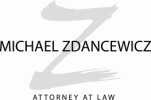 An adversary proceeding in bankruptcy is a separate lawsuit filed within a bankruptcy case. Any party can file an adversary proceeding: the U.S. Bankruptcy Trustee, a creditor, or the debtor.
An adversary proceeding in bankruptcy is a separate lawsuit filed within a bankruptcy case. Any party can file an adversary proceeding: the U.S. Bankruptcy Trustee, a creditor, or the debtor.
Not all bankruptcies include adversary proceedings; their purpose is to obtain some form of relief from the court. A contested matter in bankruptcy is different from an adversary action and is governed by the Federal Rules of Bankruptcy Procedure as well as by the Federal Rules of Civil Procedure.
Some of the common reasons for filing an adversary proceeding include:
- Fraudulent transfers – The Trustee can file a fraudulent transfer adversary complaint if fraud is suspected in a transfer of money or property occurring before a bankruptcy filing.
- Preferential transfers – The bankruptcy trustee can file a preferential transfer adversary complaint, also known as a preference adversary, if a debtor made pre-bankruptcy payments to creditors while insolvent, or in an attempt to avoid a Chapter 7 bankruptcy.
- Lien stripping – A Chapter 13 debtor carrying more than one mortgage on a home may file to have these junior (additional) mortgages “stripped” away. The lien holders then become unsecured creditors.
- Sale of debtor’s jointly-owned property – If the debtor owns property jointly with others, the Trustee can file an adversary complaint to sever (separate) the parties’ interests, thus forcing the other owner(s) to sell the property. That sale amount would go toward the benefit of creditors.
- Discharge of debt – Generally, in Chapter 7 bankruptcy cases, most or all of the debtors’ debts are discharged at the end of the bankruptcy. However, a creditor can file an adversary complaint requesting that the court not discharge a particular debt. The creditor must prove that the debt was incurred by actual or constructive fraud.
If you would like more information about adversary proceedings in bankruptcy, creditors’ rights, or if you need assistance from an attorney, contact Windtberg & Zdancewicz to schedule an initial consultation.
The attorneys at Windtberg & Zdancewicz, PLC, provide clients with experienced legal representation in all collection matters. We are experienced in creditor’s rights including garnishments, charging orders, attachment, property execution, trustee’s sales, foreclosures, judgments, judgment collection, domestication of foreign judgments, and creditor’s issues in bankruptcy cases. If you need assistance with your collection matters, please contact us at (480) 584-5660.
